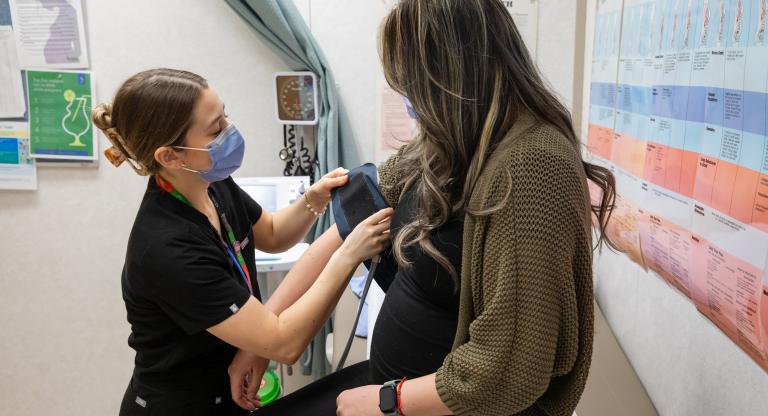Dr. Michelle Naimer co-led important study about a cause of declining chlamydia screening

An unintended consequence of changes to Ontario’s cervical cancer screening guidelines led to thousands of women not being tested and diagnosed for chlamydia, new research from Mount Sinai Hospital’s Family Health Team, Public Health Ontario (PHO), and the Institute for Clinical Evaluative Sciences (ICES) has found.
In May 2012, changes to cervical cancer screening guidelines in Ontario recommended that women who have ever been sexually active receive a Pap test every three years starting at age 21. Prior to 2012, annual Pap tests were recommended for women starting three years after becoming sexually active. While doing the Pap test, it was common practice for physicians to also collect swabs to screen for sexually transmitted infections such as chlamydia, the most common sexually transmitted infection in Ontario and around the world. PHO surveillance data shows an increasing trend of chlamydia cases.
Two years after Ontario’s cervical cancer screening guidelines changed, the researchers saw reduced chlamydia testing in women, with the greatest reduction in the 15- to 19-year old age group. This reduction in testing coincided with fewer reported cases of chlamydia for women in that age range. In comparison, chlamydia incidence remained unchanged for men in the same age group despite increased testing.
“For women, most chlamydia infections are asymptomatic, yet women are disproportionately affected by the complications of infection. Untreated chlamydia infections can result in pelvic inflammatory disease, ectopic pregnancy, neonatal illness and infertility,” said Dr. Michelle Naimer, co-lead author of the new research. Dr. Naimer is a family physician at the Mount Sinai Academic Family Health Team, part of the Sinai Health System. “Our purpose in doing this study was to learn what impact, if any, changes to Ontario’s cervical cancer screening program had on other health conditions that were typically screened for during Pap tests.”
“From a public health perspective, it is important to ensure that chlamydia cases are diagnosed in order to limit the spread of infection and the longer-term impacts of this infection if it isn’t caught and treated,” said Dr. Jeff Kwong, a scientist at ICES and PHO and co-lead author of the research. “This is particularly true for women younger than 21 years of age who are at risk for chlamydia if they are sexually active and who no longer warrant cervical cancer screening. This research shows that women should be tested for chlamydia based on risk, regardless of the need for Pap tests.”
The authors estimate that 2,726 fewer cases of chlamydia were detected per year in Ontario for two years following the guideline change. This has important health implications, especially for young women who usually do not have any symptoms. The researchers hope that greater public awareness about the need for young women to be tested for chlamydia if they are sexually active, and the availability of a simple urine test to do so, will lead to more screening for young women.
Using ICES data from physician billings to identify Pap and chlamydia tests and PHO data to identify chlamydia lab testing and reported cases, the study looked at all Ontarians between 15 and 29 years of age from May 2010 to July 2014. The findings are published in the July 10 issue of the Annals of Family Medicine.
Quick facts:
- Chlamydia infections are increasing in Ontario. Of all reportable infectious diseases, chlamydia has the highest number of cases in the province.
- There were 41,829 cases of chlamydia in 2016, compared to 39,037 in 2015, 35,987 in 2014, and 34,684 in 2013. In 2006, there were 22,409 reported chlamydia cases in Ontario.
- Two years after changes to cervical cancer screening guidelines, chlamydia testing in women dropped 26 per cent in women aged 15-19 and 18 per cent in women aged 20-24.
- Over this same time period, reported chlamydia cases dropped 17 per cent in women aged 15-19 and 14 per cent in women aged 20-24.













